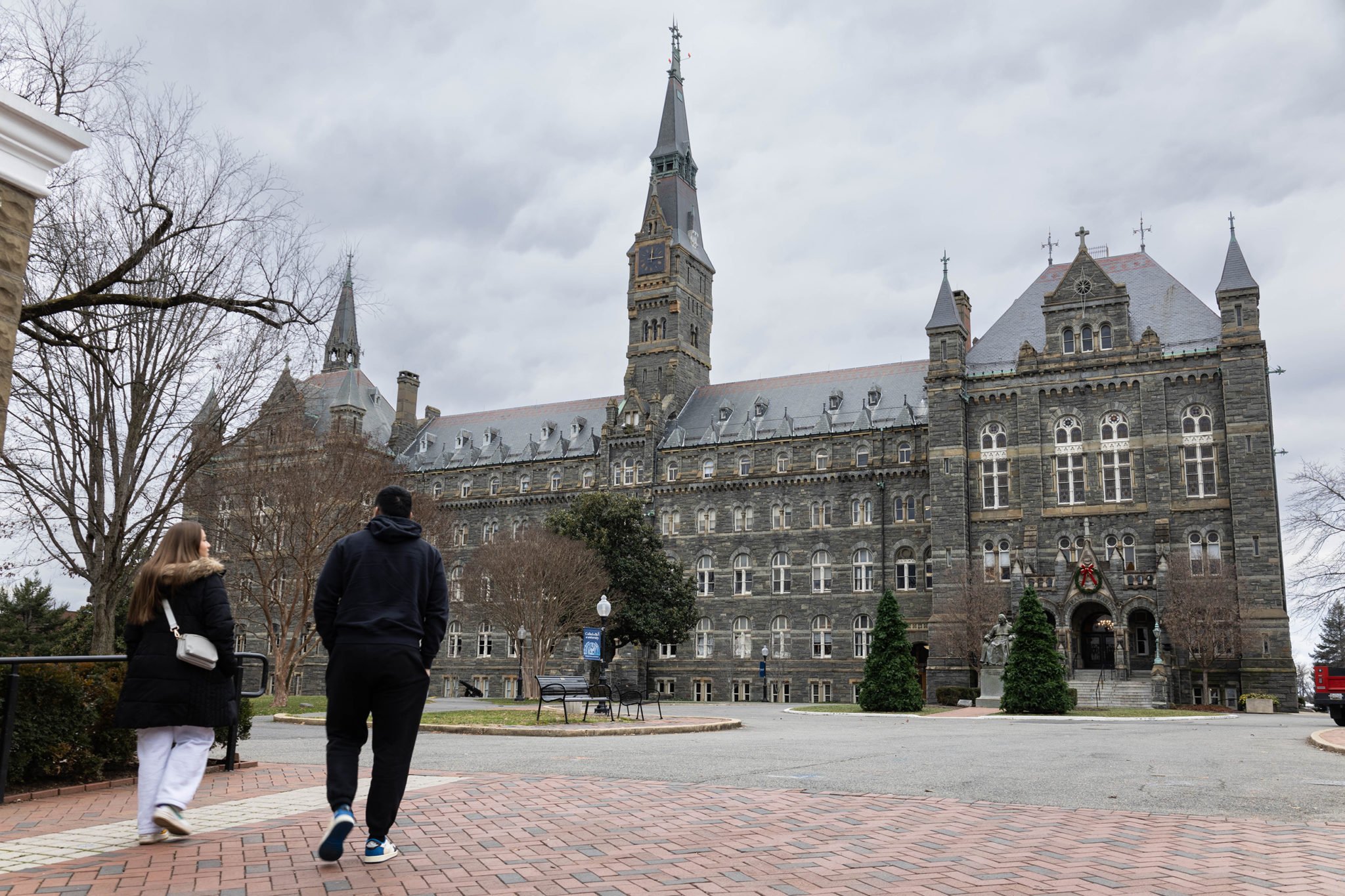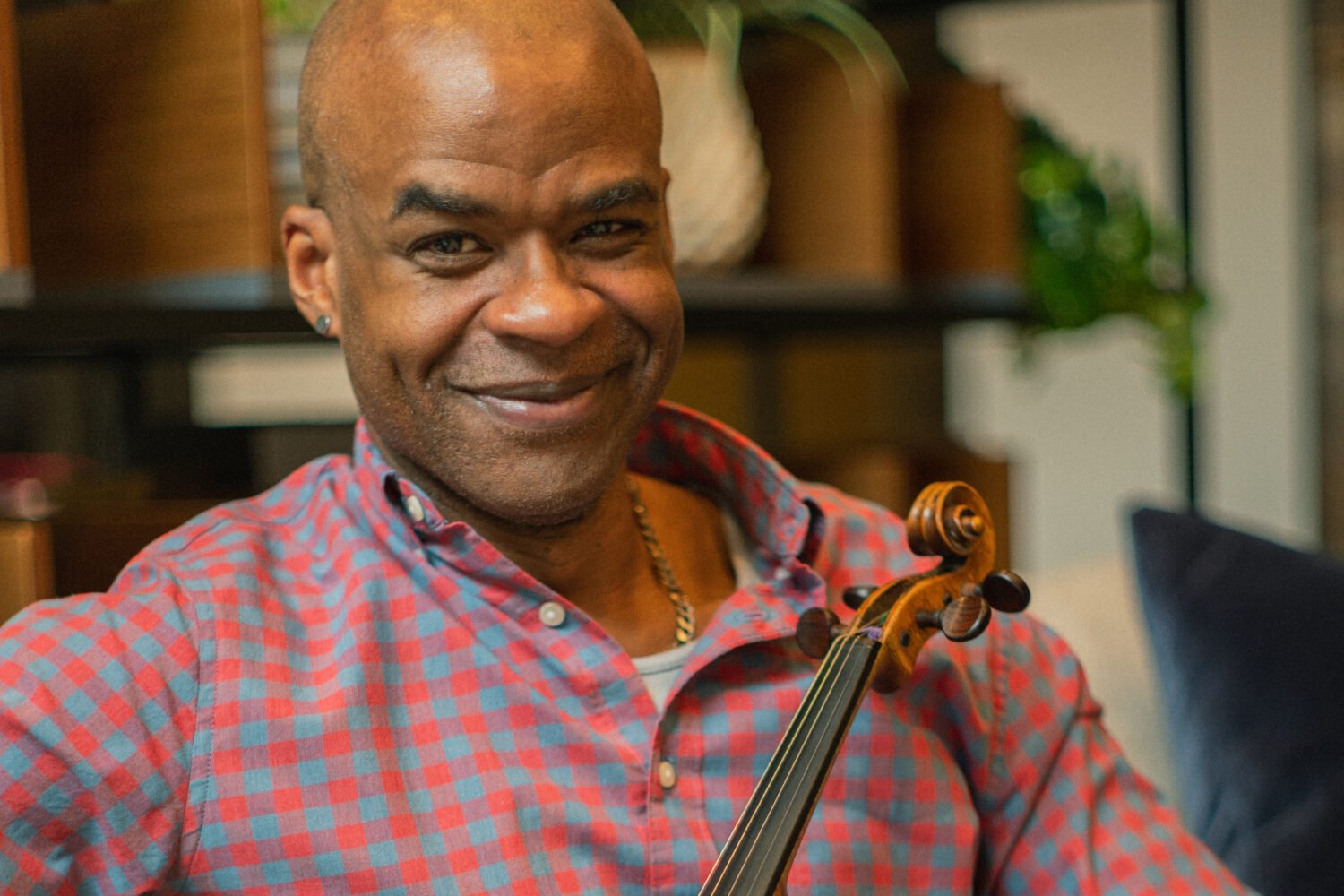When new students arrive at Georgetown University, many are excited to join a campus club. Some gravitate toward ultimate Frisbee or rock climbing. Others sign up for the improv comedy group or the school newspaper. But these days, one of Georgetown’s hottest student activities is something rather more buttoned-up: consulting.
Consulting? A popular and lucrative DC profession, to be sure, but hardly the typical stuff of undergraduate extracurricular fun. Yet these career-minded clubs are a big deal at Georgetown, with hyper-professional students adopting the techniques of consulting firms like McKinsey and taking on work for real companies and nonprofits. The organizations have traditionally been selective in those they admit, requiring several rounds of business-attire interviews to apply. And for the most ambitious of the university’s aspiring professionals, only one such club matters: Hilltop Consultants, which is Georgetown’s oldest and choosiest group.
Or at least it used to be. In August, Georgetown instituted a new rule that has transformed the way many of its student groups work. Starting with the most recent fall semester, all campus clubs that are run through the business school—which includes the consulting clubs as well as ones devoted to investing and other subjects—must accept any Georgetown student who wants to join. And so what had been the school’s most elite consulting group suddenly found itself no more exclusive than, say, intramural softball. What’s a budding elite to do?
Last semester, Hilltop Consultants’ membership ballooned from about 60 to more than 300 students—far more than can actually participate in the group’s work for clients. Now Hilltop is having to rethink how it operates—and find something for those herds of wannabe consultants to actually do. Ask the club’s president, Stephanie Guy, how things are going and the Georgetown senior gives a solid consultant’s answer: “This is a newly instituted rule, and I think a lot of groups at Georgetown are still working on how to really operationalize general membership.”
The concept of a consulting club isn’t unique to Georgetown. Such groups are operating at schools like American University, Howard, and GW, as well as elite institutions around the country. But Georgetown in particular is a hotbed of young-consultant activity, and the campus is full of students who already have lengthy LinkedIn résumés and a casual command of terms like “deliverables.”
The campus is full of students who already have lengthy LinkedIn résumés and a casual command of terms like “deliverables.”
Until the rules changed, Georgetown’s consulting clubs could be nearly as selective as some of their real-life counterparts. Their work for various companies and nonprofits—including the American Red Cross and Habitat for Humanity—closely resembles the day-to-day dealings of professional management consultants. Hilltop, founded in 2004, is the only one of Georgetown’s six consulting clubs that actually charges for most of its work. The others offer their services pro bono, hoping to benefit from the hands-on experience. The popularity of consulting clubs “was something I never saw at other schools I worked at,” says Talia Schatz, assistant dean of the undergraduate career center at Georgetown’s McDonough School of Business. “When a student would come to me and say, ‘Oh my gosh, I didn’t get into this club—now I’m never going to go into this industry because I got rejected,’ this was very new to me.”
Consulting is now McDonough’s second-most popular career path, after finance. But it isn’t just students at the business school who participate in the groups; they’ve become increasingly popular with a cross-section of undergrads. “I’m not sure why,” says Eshan Kalra, a Georgetown senior and Hilltop’s director of personnel, “but it feels like every year more and more kids come onto campus knowing what consulting clubs are.”
Though such firms don’t necessarily have the best public image (as anyone who’s been through consultant-driven layoffs can tell you), the appeal of getting recruited by McKinsey & Company or Bain & Company is obvious: six-figure starting salaries, frequent travel, challenging work that can involve complex problem-solving. It’s a prestigious gig—even if your parents’ friends back home might not have any clue what it means.
Many students cite the opportunity to help nonprofits and charities function better as part of the appeal. For example, one club, Georgetown Ventures, helped a nonprofit create Project Olas, which, among other things, lets Americans pay to take Zoom Spanish lessons from women working at a garbage dump in Guatemala. Plus, the groups are just fun: This being college, the networking isn’t always strictly professional. “We do our best to host a pretty welcoming social environment,” says Karem Katary, a senior who’s a member of Georgetown Global Consulting. “It feels more like a social hangout where we sometimes have to get dressed up and hop on a call with people around the world.”
The change in the rules governing Georgetown’s clubs was prompted by the business school, which in 2018 sent around a survey asking students a range of questions about their lives on campus. One result jumped out: Many respondents—particularly students of color and first-generation, low-income, and LGBTQ students—felt excluded by the hypercompetitive club culture.
A student advisory board crafted the new guidelines, and as of this past August, any club with access to McDonough funding must have open membership, requiring only a 15-minute intake form to join. (Other highly selective clubs, such as the Georgetown University Student Investment Fund and the Georgetown Retail and Luxury Association, have also been forced to adapt.) “We think it’s really valuable for students as they come into college to not feel like they’re immediately being rejected by a group,” Schatz explains.
Meanwhile, companies like McKinsey, Bain, and Boston Consulting Group continue to maintain a high profile on campus, collaborating with some of the clubs and forging relationships with students they might want to recruit upon graduation. The new rules could now make consulting clubs less useful as farm teams for the major companies, but they’ll also broaden the path toward those top-tier gigs for students who might previously have been excluded. Elite firms like McKinsey are notoriously selective, reportedly hiring less than 1 percent of applicants.
Not surprisingly, students feel the weight of all that competition. In an opinion piece published last year in the campus publication the Georgetown Voice, a then-first-year student named Franzi Wild wrote that the university’s preprofessional culture is a barrier to students’ ability to follow their passions. Consulting is settling for “doing less bad” rather than “doing good,” Wild wrote, noting that nearly a third of Georgetown students end up pursuing careers in consulting or banking. “Of course, there is nothing wrong with students choosing consulting or banking because they want to. But I refuse to believe 1 in 3 Georgetown students is truly interested in only ‘doing less bad.’ ”
“You’d hope in your college years you’d have a bit of fun and join some clubs that aren’t so nakedly for a career in consulting. It seems not really nourishing for the soul.”
The average Georgetown student graduates with more than $25,000 in debt; financial considerations can be hard to ignore. “The cost of tuition has far outpaced the rate of inflation, so there’s a lot of pressure on these kids to not take a big risk,” says Mike Forsythe, a journalist for the New York Times and a Georgetown alumnus. “And if there’s any profession that exemplifies not taking a big risk, it’s consulting.”
Forsythe cowrote (with fellow Times reporter Walt Bogdanich) the 2022 book When McKinsey Comes to Town: The Hidden Influence of the World’s Most Powerful Consulting Firm, which digs into some of McKinsey’s less appealing attributes, from clients such as Purdue Pharma to its reputation for being hired to lay off employees and send jobs overseas in the name of shareholder profits. The rise of consulting clubs at elite universities, Forsythe says, mirrors the “consultification” of American culture, a process that took off in the 1990s as policies of globalization and deregulation opened new overseas markets and as governments and companies outsourced their labor. “It’s a safe choice,” he says. “It’s a ticket into the elite global corporate culture. It’s a credential that you’ll be able to use for the rest of your life. It attracts these insecure overachievers, which is a term McKinsey itself uses to describe their ideal candidate.” But, he adds, “you’d hope in your college years you’d have a bit of fun and join some clubs that aren’t so nakedly for a career in consulting. It seems not really nourishing for the soul.”
Let’s be real, though: DC college students are about as career-focused as can be. As senior Katary puts it, “I think the ‘preprofessional drive’ label can be placed on everyone at Georgetown.”
This article appears in the February 2024 issue of Washingtonian.
















